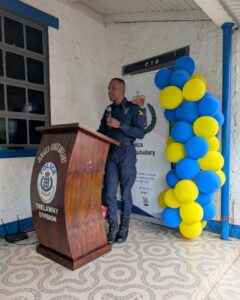
Corruption contradiction
The majority of citizens in Latin America and Caribbean (LAC), including Jamaica, believe that more than half, or all, of their politicians are corrupt.
About one in four citizens say that all politicians in their country are involved in corruption. Conversely, only 13 per cent say fewer than half, or no politicians in their country, are corrupt.
These are among the many findings contained in the ninth in a series of biennial cross-national, political culture studies known collectively as the AmericasBarometer.
Funded principally by United States Agency for International Development (USAID) and implemented by Latin America Public Opinion Project (LAPOP) Lab at Vanderbilt University in the United States, the 2021 report presents the findings of surveys in 22 countries in the LAC, including Jamaica.
While these levels of perceived corruption have been relatively stable over time, the report says, “Experts assess political corruption to be far lower than citizens report in Chile, Jamaica (55 per cent), and Costa Rica, and higher than citizens report in countries such as Nicaragua and, especially, Haiti (54 per cent).
The reported noted that: “While there are no differences between men and women in the percentages that believe more than half or all politicians are corrupt, there are significant patterns by education, age, and wealth… the youngest cohort and those who are 56 and older have lower perceptions of political corruption when compared to those who are 26-55.
“Those who have more education — who tend to be wealthier and have a higher income — have higher perceptions of corruption among politicians. There is an over 13 percentage point difference between those with at least a post secondary education as compared to those who have no formal education.
“The wealthiest respondents are about five percentage points more likely to say more than half or all politicians are corrupt as compared to the least wealthy.”
Addressing the launch of the report at Jamaica Pegasus hotel in New Kingston on Wednesday, Dr Luke Plutowski, a statistician at the LAPOP lab, who was the co-coordinator for the study in Jamaica, noted that the regional pulse check has been ongoing since 2004, with Jamaica added to the list of countries in 2006.
Plutowski noted that, in the past, the study was conducted face to face in each country, but because of COVID-19 it was done using random cellular phone numbers in 2021.
He said the interviews in Jamaica were conducted between May and July in 2021 with more than 3,000 respondents.
Despite the high level of distrust of politicians in Jamaica, Plutowski noted that there has been a rebound in pro-democracy attitude in the latest study.
In relation to the question of whether people feel satisfied, very satisfied, dissatisfied, or very dissatisfied with democracy, Plutowski said, “We saw a gradual decline in the number of people who were satisfied with the way that democracy was working in Jamaica, especially since 2012, but then we are seeing a sharp increase in 2021, almost a 12 percentage point increase in the past two or three years.
“And this is basically a cornerstone question. It’s support for democracy, so do you agree with the statement, do you agree democracy has its problems but it is better than any other form of Government? If they agree with that statement we list it as supporting democracy…” added Plutowski.
Based on Plutowski’s presentation it was obvious that the increasing confidence in democracy in Jamaica has led to a sharp decline in the number of Jamaicans who believe that a coup would be justified to deal with corruption in the Government.
“But we need to put those results in context [58.3 per cent in 2019 compared to 46.3 per cent in 2021]. So, if we look across countries in 2021, we see that Jamaica is still pretty high in this measure compared to other countries. Only in Peru and Guatemala do more people say a coup would be justified, and Jamaica is roughly in line with Bolivia and Nicaragua which I think are considered by experts to be a lot more undemocratic than Jamaica is,” underscored Plutowski.
Among the other major findings in the LAPOP 2021 report is that 50 per cent of Jamaicans see crime as the major problem facing the country despite only 7.3 per cent identifying as victims of crime.
In addition, 68 per cent of Jamaicans agree with harsher punishment for criminals while only 18 per cent feel insecure in their communities.























